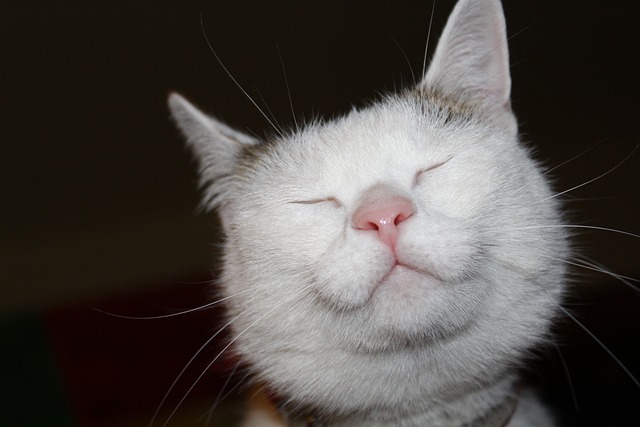Why Cats Lick Their Privates: Understanding Feline Behavior Cats, often a source of entertainment, occasionally engage in behaviors that may leave pet owners feeling uneasy. One such behavior that falls into this category is the seemingly incessant licking of their “private” parts. While this might be an uncomfortable topic, understanding the reasons behind it is crucial. Here’s a closer look at why cats engage in this behavior and when it might signal an underlying issue. Acceptable Licking: Normal Grooming Behavior In the feline world, a moderate degree of licking is considered a part of routine grooming. For instance, both male and female cats may lick their genital areas after urinating to maintain cleanliness. This behavior is generally brief and functional, ensuring hygiene without excessive persistence. It’s less common for cats to lick their anal areas after eliminating, but certain circumstances, such as sticky or watery stool, may prompt them to do so. Normal, firm bowel movements typically do not result in extended licking. When Licking Becomes a Problem: Signs to Watch For Excessive or prolonged licking of the urogenital (urinary and genital) area could be indicative of an underlying medical issue. Pet owners should be vigilant and consult a veterinarian if they observe the following signs: Swollen or red penis, vulva, or anus
The presence of specific signs such as pustules (pimples) or red bumps on the skin, discoloration of the skin (black or rust-colored), straining to urinate, increased frequency of urination, and scooting or rubbing the rectal area on the ground can indicate various underlying health issues in cats. These symptoms may point to different conditions, and it’s essential to pay attention to each one for accurate diagnosis and appropriate veterinary intervention.
- Pustules or Red Bumps on the Skin:
- Indicates potential bacterial or fungal skin infections.
- Treatment involves topical or oral antibiotics or antifungal medications.
- Discoloration of the Skin (Black or Rust-Colored):
- Could suggest pigmentation changes or, in some cases, bruising.
- May require further examination to determine the cause and appropriate action.
- Straining to Urinate:
- Commonly associated with urinary tract issues such as infections, stones, or blockages.
- Immediate veterinary attention is crucial to address underlying causes and alleviate discomfort.
- Increased Frequency of Urination:
- Can be a sign of urinary tract infections, diabetes, or kidney problems.
- Diagnostic tests and treatment are essential for managing the underlying condition.
- Scooting or Rubbing the Rectal Area on the Ground:
- Often indicative of anal gland issues, allergies, or discomfort in the anal region.
- Treatment involves addressing the specific cause, such as expressing anal glands or managing allergies.
If you observe any of these signs in your cat, it is highly recommended to consult with a veterinarian promptly. Early detection and proper diagnosis are critical for effective treatment and the overall well-being of your feline companion. Your veterinarian will conduct a thorough examination, perform necessary tests, and recommend a treatment plan tailored to your cat’s specific condition. Regular veterinary check-ups can help identify and address potential health issues before they escalate.
Foul odor between eliminations Discharge from the penis or vulva Common Causes of Excessive Licking Several medical conditions may lead to persistent licking of the genital or anal regions in cats. Here are some prevalent issues: 1. Urinary Tract Infection or Bladder Stones/Crystals: Cats with bladder infections or stone/crystal formations may lick the genital area extensively. Additional signs include straining to urinate and increased frequency. Treatment involves antibiotics, special diets, and supplements. 2. Allergies:
both environmental and food allergies can contribute to itching in the genital area of cats. Allergies in cats manifest in various ways, and the genital region is one of the areas that may be affected. Here’s a breakdown of how environmental and food allergies can lead to itching:
- Environmental Allergies:
- Cause: Cats can be allergic to environmental factors such as pollen, dust mites, mold, or certain plants.
- Symptoms: Itchy skin, redness, and inflammation in various parts of the body, including the genital area.
- Management: Identifying and avoiding the specific environmental allergen can help manage symptoms. Medications, such as antihistamines or immune-modulating drugs, may be prescribed by a veterinarian.
- Food Allergies:
- Cause: Cats may develop allergies to specific ingredients in their food, commonly proteins like chicken, beef, or fish.
- Symptoms: Itching, skin inflammation, gastrointestinal upset, and sometimes diarrhea or vomiting.
- Management: Switching to a hypoallergenic or novel protein diet can help. These diets contain proteins that the cat hasn’t been exposed to before. Additionally, elimination diets may be used to identify specific food triggers. Veterinary guidance is crucial in managing food allergies.
It’s important to note that allergic reactions can vary among individual cats, and the genital region is just one area that may be affected. Persistent itching, redness, or discomfort in this area should prompt a visit to the veterinarian for a thorough examination and diagnosis.
Veterinary professionals may conduct skin tests, blood tests, or elimination diets to determine the underlying cause of the allergies. Treatment plans may include dietary changes, medications to alleviate itching, and, in severe cases, immunotherapy to desensitize the cat to specific allergens.
If you suspect your cat has allergies or is exhibiting symptoms of discomfort, seeking prompt veterinary care is crucial for proper diagnosis and effective management.
Management includes identifying and avoiding allergens, hypoallergenic diets, and medications for relief without steroids. 3. Skin Infection: Bacterial or yeast infections on the skin can lead to constant licking. Topical treatments, along with antibiotics, help combat these infections. 4. Anal Gland Impaction: Over-filled anal glands can cause a foul odor and irritation, leading to licking. Manual evacuation resolves the issue, but severe cases may require surgery. Cats naturally engage in private part licking, but vigilant observation and prompt veterinary attention can address any discomfort or medical issues. Appropriate medical therapy, tailored to the specific condition, can alleviate your cat’s discomfort and promote their overall well-being. Regular check-ups and awareness of your cat’s behavior are key to maintaining their health and happiness.



